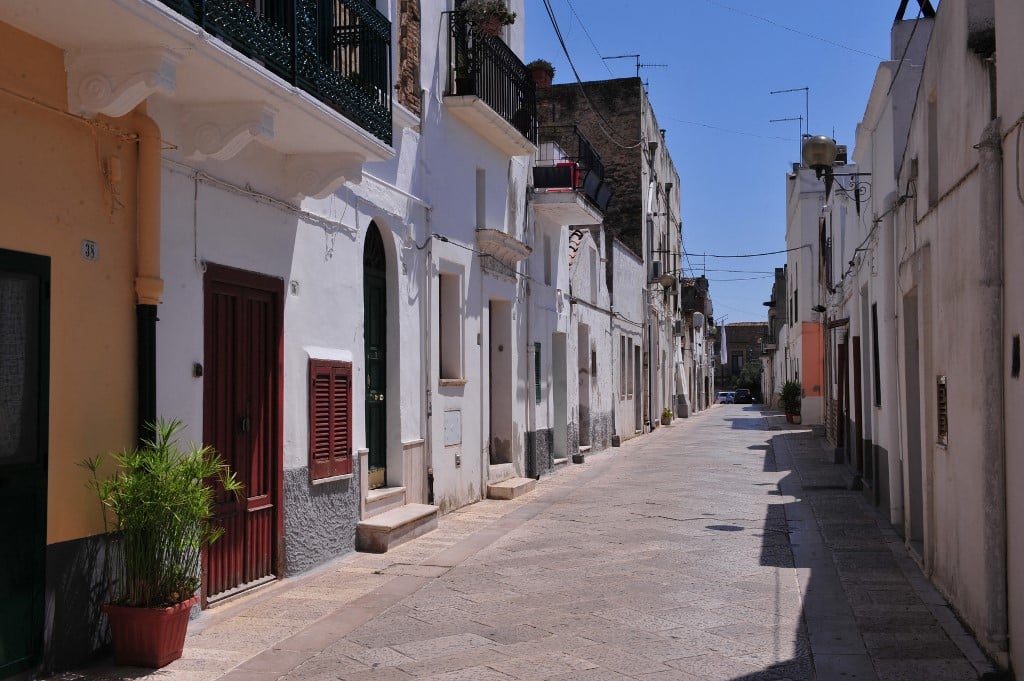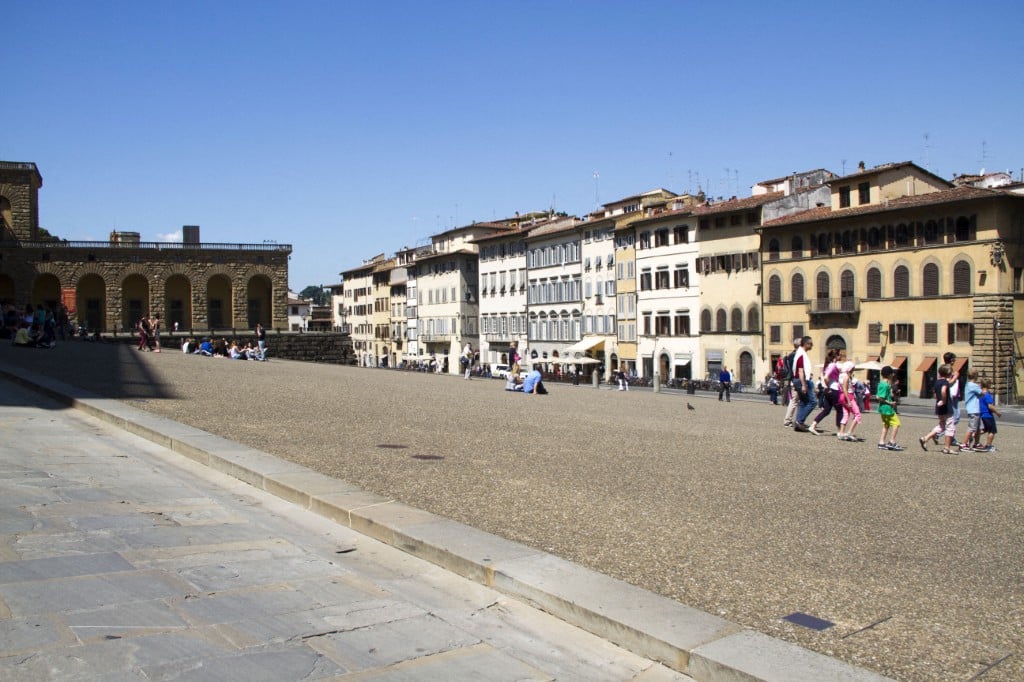How Airbnb's tax rules in Italy are changing in 2024

Airbnb has said it will start automatically withholding a 21-percent tax from some hosts’ earnings in January – but who exactly does this apply to and what can you expect?
A major change is set to affect homeowners renting out their properties for short periods of time this year as rental platform Airbnb has said it will automatically withhold a 21-percent tax from hosts’ earnings from January.
The announcement followed a long legal dispute between Airbnb and Italy’s tax agency (Agenzia delle Entrate) over a law requiring short-term rental platforms to act as “tax agents” and therefore withhold host income tax on behalf of the Italian tax office.
Though the requirement was made into law in April 2017, Airbnb did not collect rental income tax from hosts over the following six years as it argued in a EU court that the obligation was not legal under the bloc’s regulations – a case ultimately lost by the site in December 2022.
READ ALSO: Airbnb to pay €576-million settlement in Italian tax evasion dispute
As Airbnb is reportedly in the process of notifying homeowners of the upcoming change and asking them to update their tax preferences when needed, a certain degree of confusion lingers over what this latest development is all about and exactly which types of hosts will be affected by it.
What’s really changing?
Not unlike any other type of income, income from Airbnb lets must be declared to the Italian tax agency and is subject to income tax on a yearly basis.

A view of a street in Bernalda, in the Basilicata region, in August 2011. Photo by GIUSEPPE CACACE / AFP
Owners offering short-term accommodation (this is defined as any rental period of 30 days or less in Italy) have two options when it comes to paying income tax on their earnings:
- Regime ordinario (or ‘ordinary tax regime’), which entails declaring any rental income as part of your overall income for the year and then paying Irpef (Italy’s main tax on individual income) on it.
- Cedolare secca: a 21-percent flat tax on rental income, which increases to 26 percent for owners renting out two to four houses, and is not available for owners letting five or more properties.
Previously, owners would choose one of the two options above when filing their yearly taxes and then make payments based on their individual declarations.
The incoming change however means that Airbnb will automatically withhold a 21-percent income tax from hosts’ earnings, with owners required to choose at tax time whether to claim the ‘withheld amount’ as their cedolare secca payment for the year or subtract it from their planned Irpef payments if they choose the regime ordinario.
Who does this apply to?
Airbnb says the change will apply to “the earnings of non-professional hosts derived from short lets”.
But while Italian law is clear as to which rentals qualify as short lets – that’s any rental period of 30 days or less – it doesn’t define exactly who’s a professional host and who isn’t, with the Agenzia delle Entrate vaguely describing professional hosts as owners carrying out “organised business activity” under “income and VAT considerations”.

A view of Pitti square in Florence. Photo by CLAUDIO GIOVANNINI / AFP
Airbnb guidance offers some degree of clarity on the subject, as the site says that a non-professional host is a “private citizen” for whom renting via Airbnb is “a secondary activity”, meaning that it’s not their “main job or source of income”.
For instance, this includes “hosts that rent fewer than five properties and are not partita Iva owners”.
READ ALSO: How Italy is planning to limit Airbnb rentals
On the other hand, businesses and private citizens who either rent properties via Airbnb as their main job or source of income or “are part of a consolidated business” should be considered professional hosts.
If you have doubts on whether or not your activity on Airbnb qualifies as professional, you’re advised to get in touch with a legal expert.
When do the changes come into effect?
Airbnb has said that it will reach out to non-professional hosts in January to notify them of the change.
Hosts will have fourteen days from when they were first notified to either confirm that they should be subject to the automatic 21-percent withholding as ‘non-professional hosts’ or communicate that their host status has changed to ‘professional’.
READ ALSO: What to expect from Italy's property market in 2024
If you confirm your non-professional status, the 21-percent withholding will apply from the moment you submit your reply.
If you don’t reply to the message within the fourteen-day window, the tax will be applied automatically following the deadline.
Comments
See Also
A major change is set to affect homeowners renting out their properties for short periods of time this year as rental platform Airbnb has said it will automatically withhold a 21-percent tax from hosts’ earnings from January.
The announcement followed a long legal dispute between Airbnb and Italy’s tax agency (Agenzia delle Entrate) over a law requiring short-term rental platforms to act as “tax agents” and therefore withhold host income tax on behalf of the Italian tax office.
Though the requirement was made into law in April 2017, Airbnb did not collect rental income tax from hosts over the following six years as it argued in a EU court that the obligation was not legal under the bloc’s regulations – a case ultimately lost by the site in December 2022.
READ ALSO: Airbnb to pay €576-million settlement in Italian tax evasion dispute
As Airbnb is reportedly in the process of notifying homeowners of the upcoming change and asking them to update their tax preferences when needed, a certain degree of confusion lingers over what this latest development is all about and exactly which types of hosts will be affected by it.
What’s really changing?
Not unlike any other type of income, income from Airbnb lets must be declared to the Italian tax agency and is subject to income tax on a yearly basis.

Owners offering short-term accommodation (this is defined as any rental period of 30 days or less in Italy) have two options when it comes to paying income tax on their earnings:
- Regime ordinario (or ‘ordinary tax regime’), which entails declaring any rental income as part of your overall income for the year and then paying Irpef (Italy’s main tax on individual income) on it.
- Cedolare secca: a 21-percent flat tax on rental income, which increases to 26 percent for owners renting out two to four houses, and is not available for owners letting five or more properties.
Previously, owners would choose one of the two options above when filing their yearly taxes and then make payments based on their individual declarations.
The incoming change however means that Airbnb will automatically withhold a 21-percent income tax from hosts’ earnings, with owners required to choose at tax time whether to claim the ‘withheld amount’ as their cedolare secca payment for the year or subtract it from their planned Irpef payments if they choose the regime ordinario.
Who does this apply to?
Airbnb says the change will apply to “the earnings of non-professional hosts derived from short lets”.
But while Italian law is clear as to which rentals qualify as short lets – that’s any rental period of 30 days or less – it doesn’t define exactly who’s a professional host and who isn’t, with the Agenzia delle Entrate vaguely describing professional hosts as owners carrying out “organised business activity” under “income and VAT considerations”.

Airbnb guidance offers some degree of clarity on the subject, as the site says that a non-professional host is a “private citizen” for whom renting via Airbnb is “a secondary activity”, meaning that it’s not their “main job or source of income”.
For instance, this includes “hosts that rent fewer than five properties and are not partita Iva owners”.
READ ALSO: How Italy is planning to limit Airbnb rentals
On the other hand, businesses and private citizens who either rent properties via Airbnb as their main job or source of income or “are part of a consolidated business” should be considered professional hosts.
If you have doubts on whether or not your activity on Airbnb qualifies as professional, you’re advised to get in touch with a legal expert.
When do the changes come into effect?
Airbnb has said that it will reach out to non-professional hosts in January to notify them of the change.
Hosts will have fourteen days from when they were first notified to either confirm that they should be subject to the automatic 21-percent withholding as ‘non-professional hosts’ or communicate that their host status has changed to ‘professional’.
READ ALSO: What to expect from Italy's property market in 2024
If you confirm your non-professional status, the 21-percent withholding will apply from the moment you submit your reply.
If you don’t reply to the message within the fourteen-day window, the tax will be applied automatically following the deadline.
Join the conversation in our comments section below. Share your own views and experience and if you have a question or suggestion for our journalists then email us at [email protected].
Please keep comments civil, constructive and on topic – and make sure to read our terms of use before getting involved.
Please log in here to leave a comment.